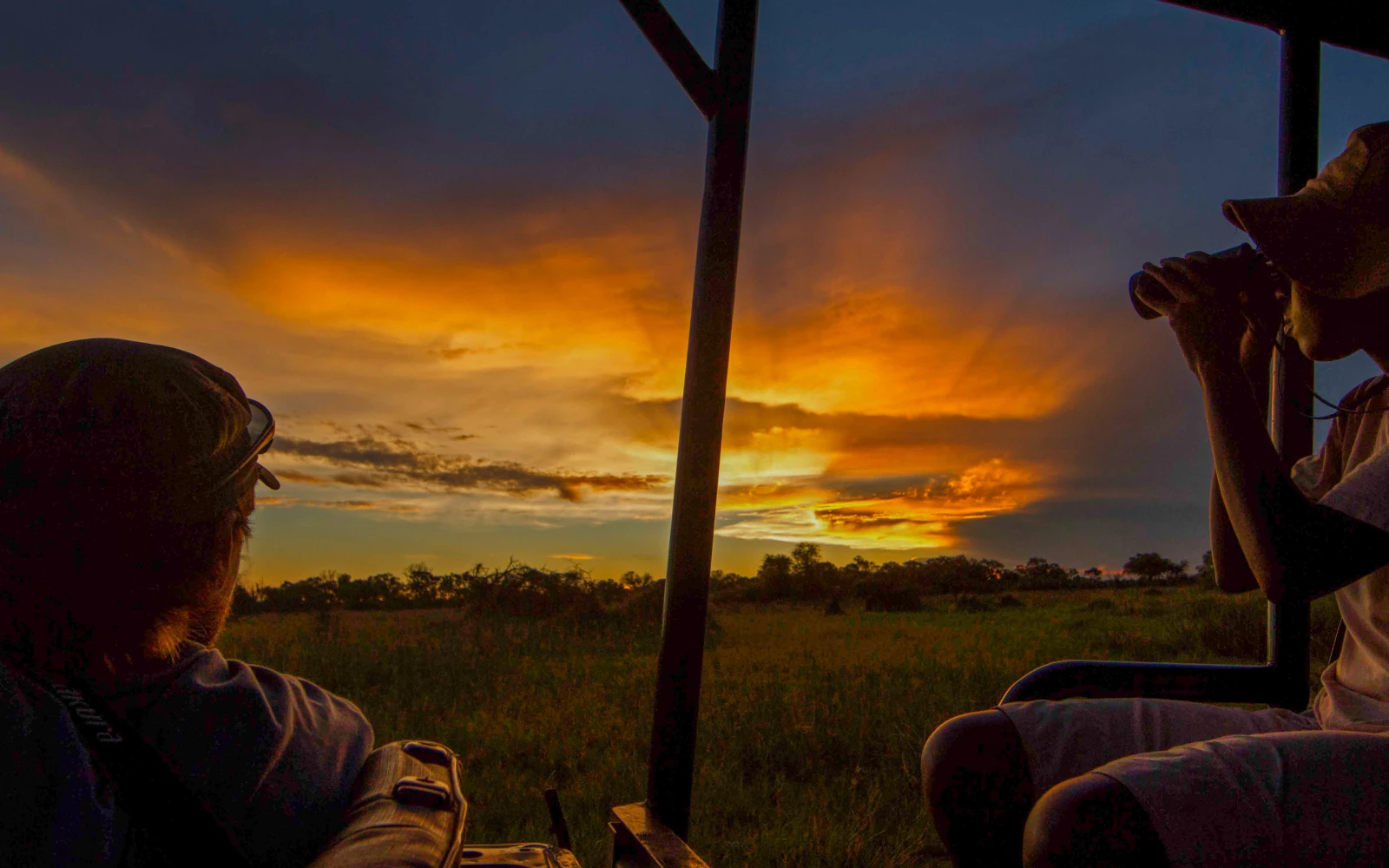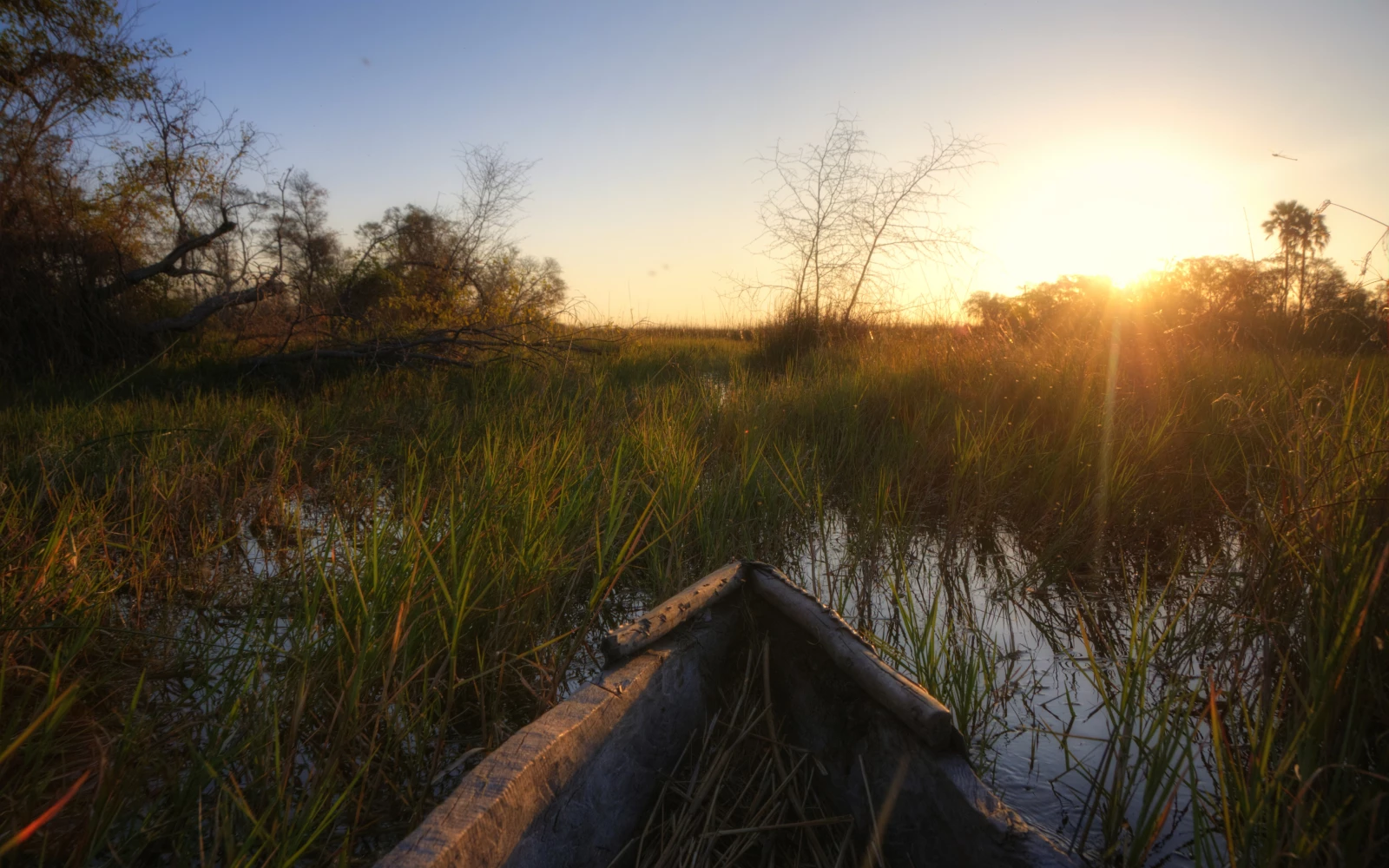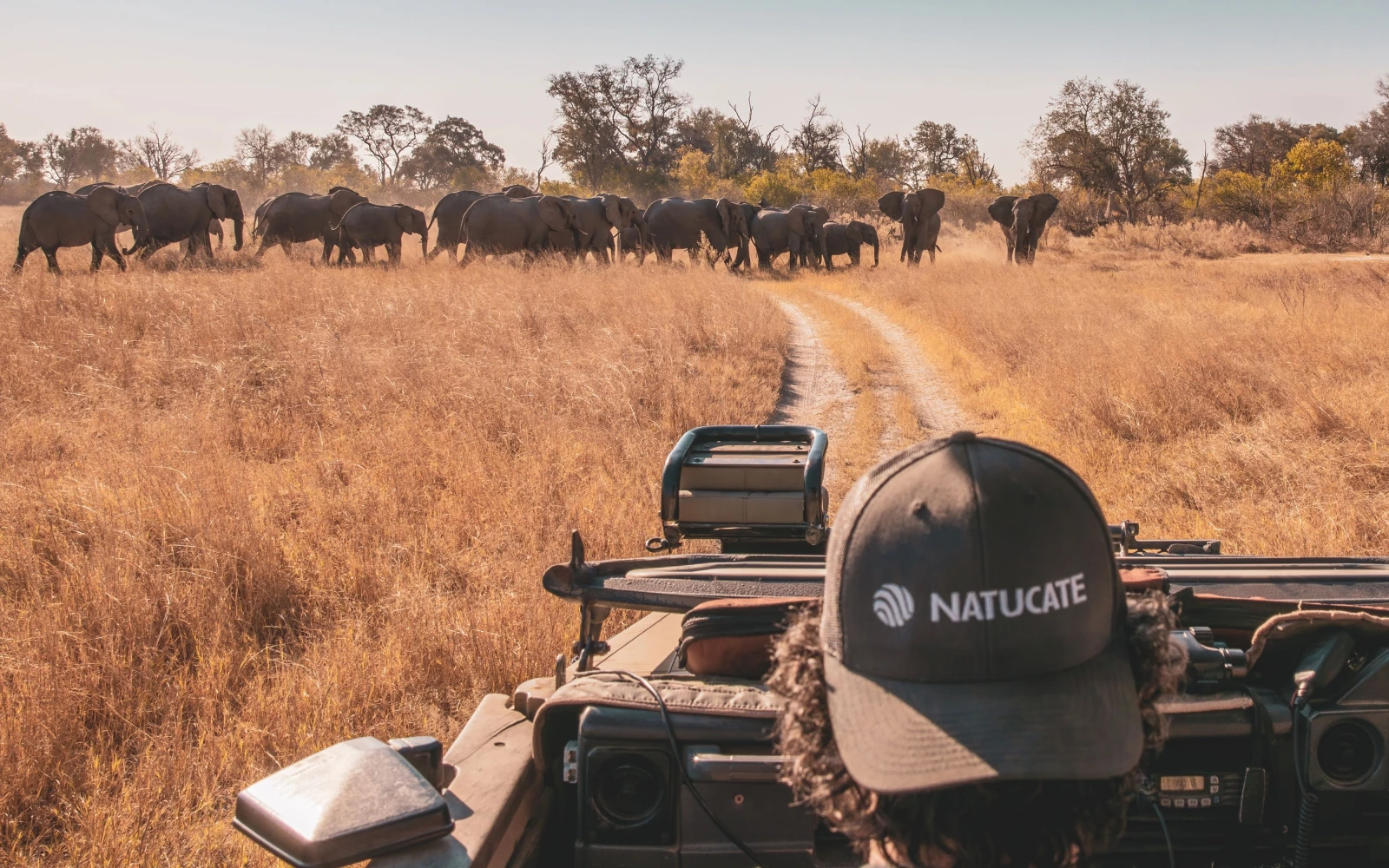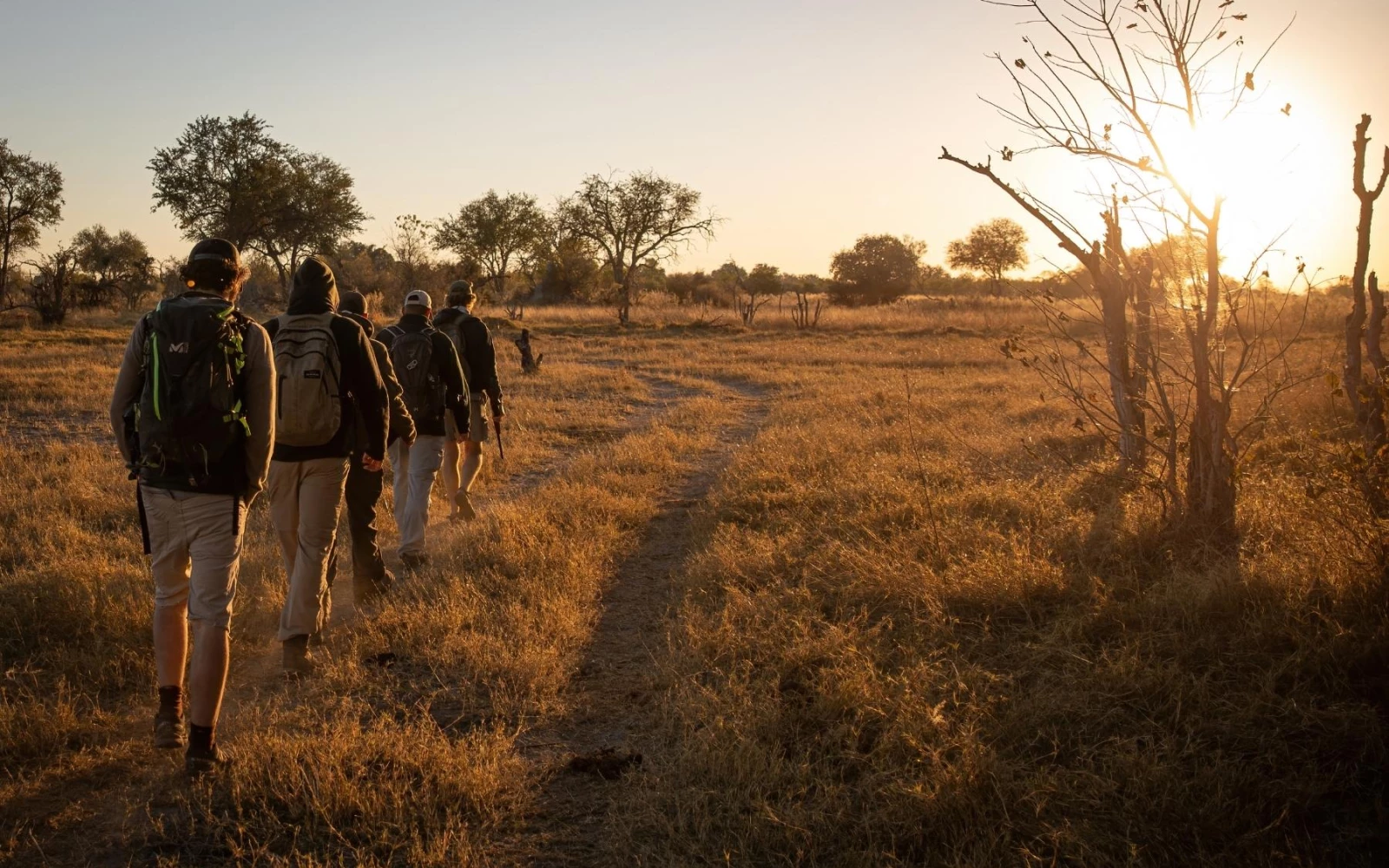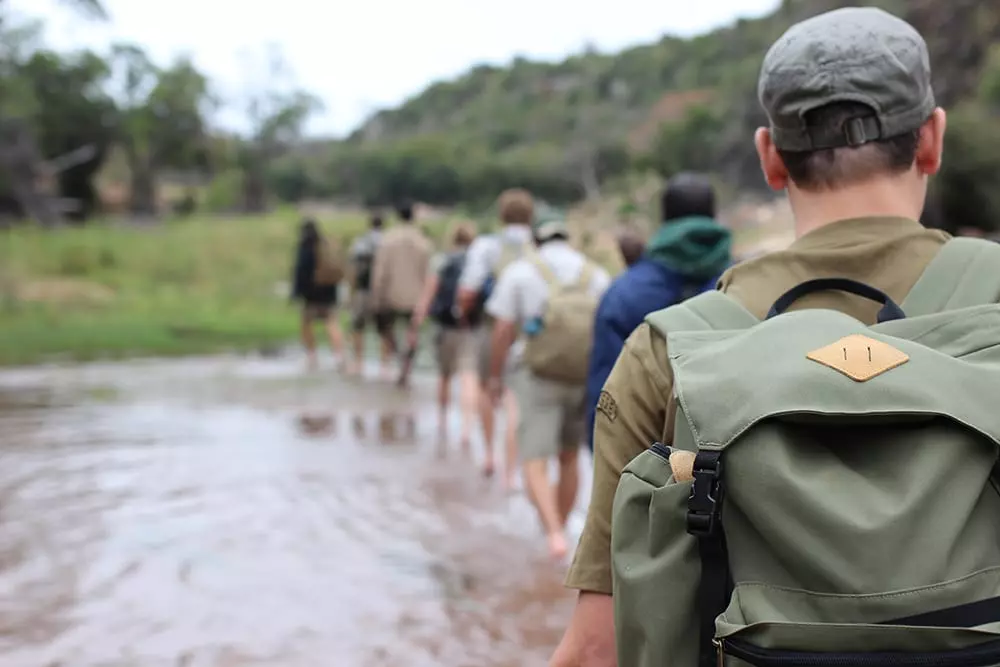
Guide Course in Botswana
Field Guide course in Botswana
Botswana offers a range of guide courses and wildlife programs for those interested in exploring the country's incredible wildlife and natural landscapes. Many of these courses are designed to provide participants with in-depth knowledge about Botswana's flora, fauna, and ecosystems, as well as practical skills needed for guiding and wildlife management.
Why do a field guide course in Botswana?
- Unique wildlife and ecosystems: Botswana is home to some of the most diverse and unique ecosystems in Africa, including the Okavango Delta, the Chobe National Park, and the Central Kalahari Game Reserve. These areas are renowned for their incredible wildlife, including elephants, lions, leopards, cheetahs, African wild dogs, and numerous bird species. A guide course in Botswana will provide you with the opportunity to learn about these animals and their habitats firsthand.
- High-quality training: Botswana is known for its commitment to conservation and sustainable tourism, which has led to the development of high-quality guide training programs. These courses are often affiliated with internationally recognized organizations, such as the Field Guides Association of Southern Africa (FGASA), ensuring that you receive a comprehensive education.
- Practical experience: Guide courses in Botswana offer a combination of theoretical knowledge and practical experience. You will have the chance to learn from experienced guides and wildlife experts while exploring the country's stunning landscapes and observing its remarkable wildlife up close.
- Cultural immersion: A guide course in Botswana will also provide you with an opportunity to immerse yourself in the local culture. You will interact with local communities, learn about their customs and traditions, and gain a deeper understanding of the relationship between people and the environment in this part of the world.
- Personal growth: Participating in a guide course in Botswana can be a transformative experience, as you develop new skills, forge connections with like-minded individuals, and deepen your appreciation for the natural world. This experience can be both personally and professionally rewarding, as you contribute to the conservation of Botswana's extraordinary wildlife and ecosystems.
How to do a Field Guide course in Botswana?
- Research available courses: Start by researching various guide courses offered in Botswana. Look for courses that are affiliated with recognized organizations such as the Field Guides Association of Southern Africa (FGASA) or other reputable institutions. You can find courses offered by institutions like the Okavango Guiding School, Botswana Wildlife Training Institute, and EcoTraining, among others.
- Choose a suitable course: Determine your interests and career goals to help you choose a suitable course. Some courses focus on specific aspects of guiding, such as birding, wildlife tracking, or wilderness first aid, while others provide a more general overview of guiding skills and knowledge.
- Check the requirements: Before applying for a course, check the eligibility requirements, which may include age restrictions, language proficiency, and previous experience or qualifications. Ensure that you meet these criteria before submitting your application.
- Prepare a budget: Calculate the costs associated with the guide course, including tuition fees, accommodation, meals, travel expenses, and any additional expenses like visas or vaccinations. Determine if you need financial assistance or if you can afford the course on your own.
- Apply for the course: Once you have chosen a suitable course and ensured that you meet the requirements, submit your application to the institution offering the course. This may involve filling out an application form, providing a resume or CV, and submitting any required documents or references.
- Plan your travel: If your application is successful, start planning your trip to Botswana. Apply for any necessary visas, arrange flights, and organize accommodation and transportation within the country.
- Obtain necessary vaccinations and medical clearance: Consult your doctor to ensure you are up to date with any required vaccinations and receive any necessary medical clearance for your trip.
- Learn basic local language skills: While most guide courses in Botswana are conducted in English, it is helpful to learn some basic phrases in the local language (Setswana) to enhance your experience and interactions with local communities.
- Attend the course: Once you have completed all the necessary preparations, travel to Botswana and attend the guide course. Engage actively in both the theoretical and practical components of the course, ask questions, and learn as much as possible from your instructors and fellow participants.
- Apply your newfound skills: After completing the guide course, seek opportunities to apply your skills and knowledge in the eco-tourism and conservation sectors. This may involve pursuing a career as a field guide, safari guide, wildlife researcher, or conservationist in Botswana or other African countries.
Special Areas in Botswana
Botswana is home to several special areas that showcase its unique landscapes, diverse wildlife, and rich cultural heritage. Some of these special areas include:
Okavango Delta: The Okavango Delta is a UNESCO World Heritage Site and one of the world's largest inland deltas. It is a unique ecosystem of channels, lagoons, and islands that supports an incredible variety of wildlife, including elephants, lions, leopards, cheetahs, and hundreds of bird species.
Chobe National Park: Chobe National Park is famous for its large elephant population and diverse wildlife. The park is divided into four distinct eco-systems: the Chobe Riverfront, Savuti Marsh, Linyanti Swamps, and the dry hinterland. The park offers excellent game viewing opportunities, especially during the dry season when animals congregate around water sources.
Moremi Game Reserve: Situated in the eastern part of the Okavango Delta, Moremi Game Reserve is a protected area that boasts diverse habitats, including floodplains, woodlands, and lagoons. It is home to a wide variety of wildlife, such as lions, leopards, wild dogs, and numerous bird species.
Central Kalahari Game Reserve: The Central Kalahari Game Reserve is one of the largest and most remote reserves in Africa, covering a vast expanse of semi-arid savannah and grasslands. The reserve is known for its unique desert-adapted wildlife, including oryx, springbok, and the famous black-maned Kalahari lions.
Makgadikgadi Pans National Park: The Makgadikgadi Pans National Park encompasses one of the largest salt pans in the world. During the wet season, the pans transform into a lush, green landscape, attracting large numbers of migratory birds and animals such as zebra and wildebeest.
Nxai Pan National Park: Nxai Pan National Park is home to another large salt pan and is best known for the Baines' Baobabs, a group of ancient baobab trees that were immortalized in paintings by the British explorer Thomas Baines. The park supports a variety of wildlife, including elephants, lions, and cheetahs, as well as numerous bird species.
Tsodilo Hills: A UNESCO World Heritage Site, Tsodilo Hills is a sacred site for the San Bushmen and features over 4,500 rock paintings that date back thousands of years. The area holds significant cultural and spiritual importance and offers a unique insight into the history and traditions of the indigenous people.
Kgalagadi Transfrontier Park: This vast park spans both Botswana and South Africa and is characterized by red sand dunes, dry riverbeds, and unique desert-adapted wildlife. The park is home to animals such as gemsbok, springbok, and predators like lions, cheetahs, and leopards.
These special areas in Botswana offer visitors a chance to experience the country's natural beauty, diverse wildlife, and rich cultural heritage, making them must-visit destinations for any traveler.
Conservation in Botswana
Botswana is known for its commitment to wildlife conservation and sustainable eco-tourism. The country is home to some of the world's most diverse and intact ecosystems, including the Okavango Delta, the Chobe National Park, and the Central Kalahari Game Reserve. The government of Botswana has taken several measures to ensure the preservation of its natural resources and promote conservation efforts. Key aspects of conservation in Botswana include:
Protected areas: Approximately 38% of Botswana's land is designated as protected areas, including national parks, game reserves, and wildlife management areas. These areas provide crucial habitat for a variety of wildlife, including elephants, lions, cheetahs, rhinos, and numerous bird species.
Wildlife management: Botswana has implemented wildlife management policies aimed at protecting and conserving its diverse species. This includes anti-poaching measures, monitoring of animal populations, and habitat management to ensure the survival of wildlife and the ecosystems they inhabit.
Community-based natural resource management (CBNRM): Botswana recognizes the importance of involving local communities in conservation efforts. CBNRM initiatives, such as the Community-Based Natural Resource Management Programme, aim to promote sustainable resource use and income generation from natural resources for local communities. This approach helps foster a sense of ownership and stewardship among communities, which in turn contributes to conservation success.
Eco-tourism: Botswana is a popular destination for eco-tourism, with numerous eco-lodges and sustainable travel initiatives throughout the country. By promoting responsible tourism practices, Botswana seeks to generate income for conservation efforts and local communities, while minimizing the negative environmental impacts of tourism.
Conservation education and research: Botswana invests in conservation education and research, with institutions like the Botswana Wildlife Training Institute providing training for local and international conservationists. In addition, numerous research projects are conducted in partnership with local and international organizations to gather data and inform conservation strategies.
Wildlife corridors: Botswana is working on establishing and maintaining wildlife corridors, which allow animals to move freely between protected areas. These corridors are essential for maintaining genetic diversity and supporting healthy wildlife populations.
Regional cooperation: Botswana participates in regional conservation initiatives, such as the Kavango Zambezi Transfrontier Conservation Area (KAZA TFCA), which aims to protect and manage a vast ecosystem spanning five countries in Southern Africa. This cooperation fosters the sharing of knowledge and resources to address conservation challenges across borders.
Through a combination of policy, community involvement, and international cooperation, Botswana continues to prioritize and invest in the conservation of its unique wildlife and ecosystems.
